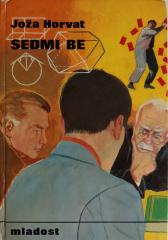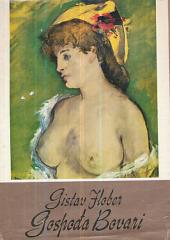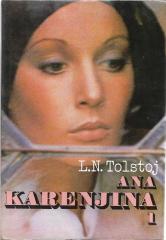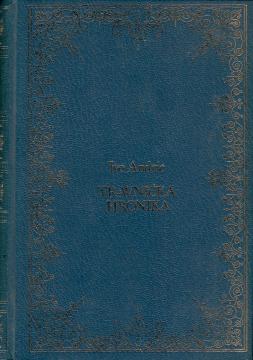
Sabrana djela II: Travnička hronika
„Travnička hronika“ je roman Ive Andrića, prvi put objavljen 1945. godine. Ovo delo spada u autorski tzv Bosanski ciklus i pruža široku sliku istorijskih, kulturnih i političkih prilika u Bosni tokom osmanske i austrijske vladavine.
Roman je hronika događaja u Travniku, tada sjedištu bosanskog vezira, u periodu od 1806. do 1814. godine.
Radnja romana smeštena je u Travnik, u vreme složenih političkih previranja kada su se Osmansko carstvo, Napoleonova Francuska i Habzburška monarhija borile za uticaj na Balkanu. U središtu priče su dva strana konzula - francuski konzul Žan Davil i austrijski konzul Jozef fon Miterer - koji sa porodicama dolaze u Travnik i komuniciraju sa lokalnim stanovništvom, vlastima i kulturom.
Davil i Miterer, sa svojim suprotstavljenim ličnostima i političkim ciljevima, teže da pridobiju naklonost vezira i ostvare politički uticaj. Njihov dolazak simbolizuje ulazak Zapada u zatvoreni svijet Bosne. Konzuli i lokalno stanovništvo često dolaze u sukob zbog kulturnih razlika, političkih intriga i različitih interesa. Travnik je prikazan kao mjesto gdje se preklapaju različiti svjetovi – osmanski, zapadnoevropski i lokalni bosanski.
Sa promjenama u globalnoj politici dolazi do povlačenja konzula i okončanja njihovih misija u Travniku. Njihov odlazak simbolizuje prolaznost političkih i istorijskih događaja, dok Bosna ostaje u svom cikličnom stanju.
„Travnička hronika“ je pisana u formi hronike, sa pripovedačem koji sa distance i objektivnosti opisuje istorijske događaje. Roman se ističe bogatim jezikom, detaljnim opisima i psihološkom dubinom likova. Kroz priču o prošlosti Andrić razmatra univerzalne teme koje su aktuelne i u modernom dobu.
Primerak je dostupan kao deo kompleta knjiga "Ivo Andrić: Sabrana djela I-XVI"
Pregledajte komplet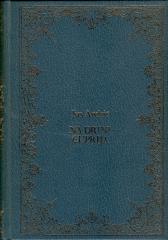
1. Sabrana djela I: Na Drini ćuprija
Na Drini ćuprija je roman Ive Andrića koji je prvi put objavljen 1945. godine. Radnja se dešava u Višegradu, malom bosanskom gradu, a centralni motiv je most na Drini, koji je simbol kulture, istorije i sudbine naroda kroz vekove.
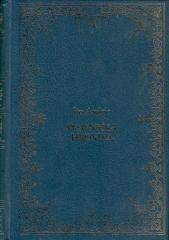
2. Sabrana djela II: Travnička hronika
„Travnička hronika“ je roman Ive Andrića, prvi put objavljen 1945. godine. Ovo delo spada u autorski tzv Bosanski ciklus i pruža široku sliku istorijskih, kulturnih i političkih prilika u Bosni tokom osmanske i austrijske vladavine.
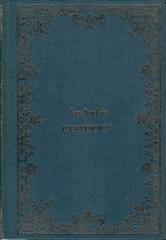
3. Sabrana djela III: Gospođica
„Gospođica“ je roman Ive Andrića, prvobitno objavljen 1945. godine. Delo spada u tzv Bosanska trilogija, zajedno sa romanima „Na Drini ćuprija” i „Travnička kronika”.
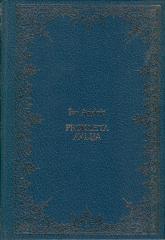
4. Sabrana djela IV: Prokleta avlija
„Prokleta avlija“ jedno je od najpoznatijih dela Ive Andrića, originalno objavljeno 1954. godine. Ovo kratko, ali snažno delo predstavlja duboku analizu ljudske prirode i sudbine kroz priču o zatvorenicima u otomanskoj tamnici poznatoj kao Prokleta avlij
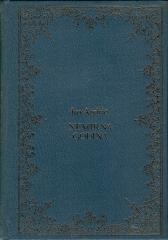
5. Sabrana djela V: Nemirna godina - pripovetke
„Nemirna godina“ je zbirka pripovedaka Ive Andrića, koja obuhvata niz pripovedaka nastalih u različitim periodima njegovog stvaralaštva.
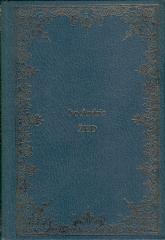
6. Sabrana djela VI: Žeđ - pripovetke
„Žeđ“ je zbirka pripovedaka Ive Andrića koja je prvi put objavljena 1936. godine. Ova zbirka predstavlja jedan od vrhunaca Andrićevog pripovedačkog stvaralaštva.
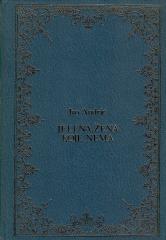
7. Sabrana djela VII: Jelena, žena koje nema - pripovetke
Reč je o zbirci pripovedaka Ive Andrića, koja je prvi put objavljena 1963. godine. Ova zbirka sadrži niz pripovedaka koje istražuju egzistencijalne teme, a naslovna priča je jedna od najpoznatijih u Andrićevom opusu.
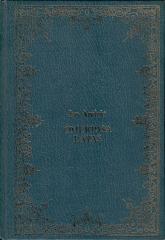
8. Sabrana djela VIII: Omerpaša Latas
Roman Ive Andrića Omerpaša Latas napisan je 1954. godine, a radi se o istorijsko-psihološkom narativu zasnovanom na životu stvarne istorijske ličnosti Omer-paše Latasa, koji je bio osmanski general i državnik tokom 19. veka.
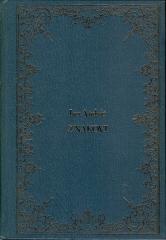
9. Sabrana djela IX: Znakovi - pripovetke
Ova zbirka objedinjuje niz kraćih Andrićevih dela koja se bave ljudskim sudbinama, istorijskim i društvenim prilikama i univerzalnim pitanjima ljudske prirode.
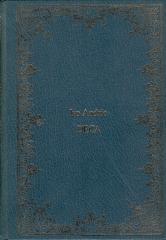
10. Sabrana djela X: Deca - pripovetke
Ova zbirka obuhvata niz priča koje se fokusiraju na svet dece, njihovu nevinost, radoznalost, patnju i suočavanje sa surovostima sveta odraslih.
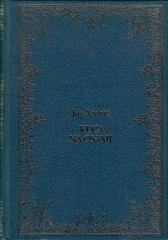
11. Sabrana djela XI: Kuća na osami i druge pripovetke
Izbor kratkih priča u ovoj knjizi sastoji se iz dva dela. Jednu čini samostalna zbirka pripovedaka „Kuća na osami“, koju je Andrić radio pred kraj svog života, a drugi deo je zbirka pripovedaka pisanih u različitim periodima.
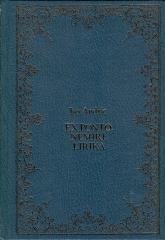
12. Sabrana djela XII: Ex Ponto, Nemiri, lirika
U ovoj svesci objavljeni su Andrićevi rani radovi, pesme u prozi, poetske beleške i lirika. Svaki od ovih naslova ima specifičnu temu i stil koji odražava Andrićevo unutrašnje stanje i filozofska promišljanja.
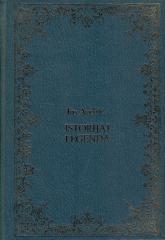
13. Sabrana djela XIII: Istorija i legenda: eseji, ogledi i članci
Ivo Andrić, osim što je bio odličan romansijer, bio je i talentovan esejista i esejista. Njegova zbirka „Istorija i legenda“ objedinjuje niz eseja, članaka i eseja koji se bave temama istorije, kulture, književnosti i ljudske sudbine.
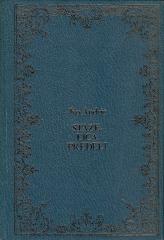
14. Sabrana djela XIV: Staze, lica, predeli
„Staze, lica, predeli“ je zbirka eseja i spisa Ive Andrića, prvi put objavljena 1963. godine. Ovo delo se razlikuje od Andrićeve beletristike jer se bavi filozofskim, introspektivnim i autobiografskim razmatranjima.
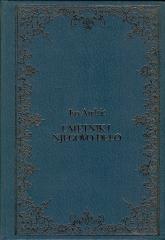
15. Sabrana djela XV: Umetnik i njegovo delo
„Umetnik i njegovo delo“ je zbirka eseja, ogleda i članaka Ive Andrića, u kojoj ovaj veliki pisac razmatra ključna pitanja umetnosti, stvaralačkog procesa i uloge umetnika u društvu.
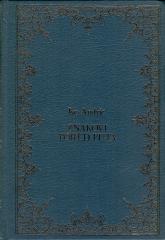
16. Sabrana djela XVI: Znakovi pored puta
„Znakovi pored puta” nisu ispovest ili hronologija života, već fragmenti života i duhovne borbe. To je zbirka mudrosti koja je iz generacije u generaciju omiljeno štivo kome se čitaoci uvek rado vraćaju iznova.

